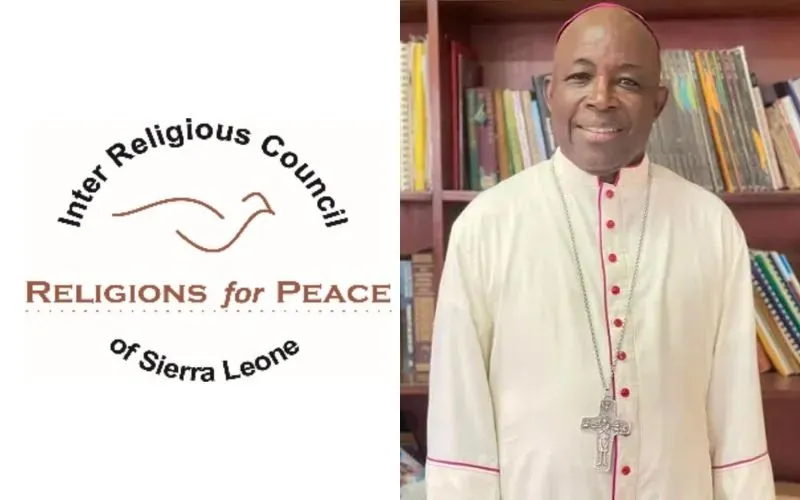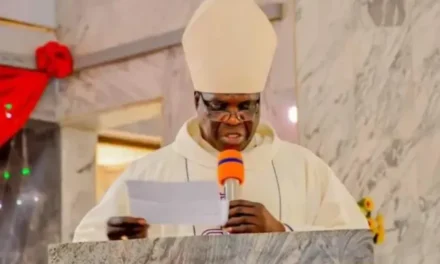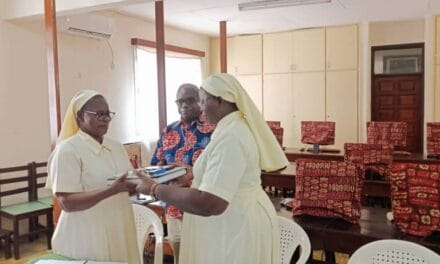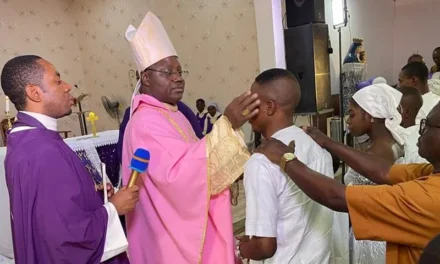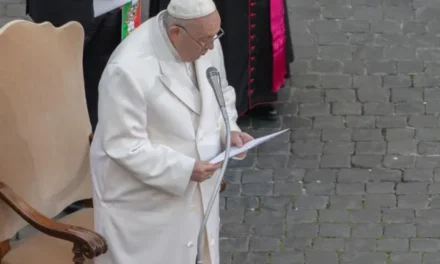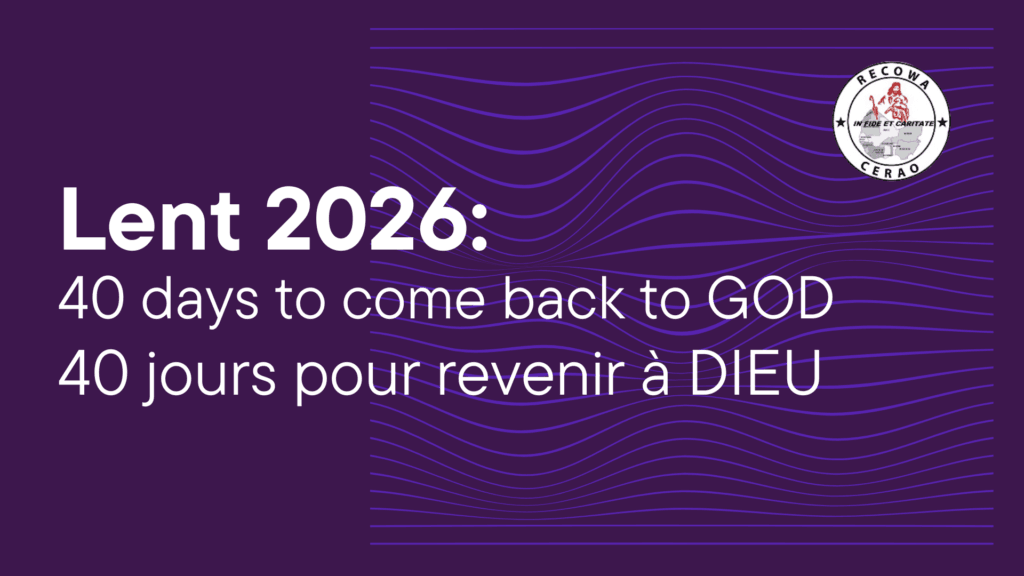Concerning abortion, the Leaders in the Church have unanimously established that it is «Clearly forbidden” in Africa and more so in Sierra Leone. This was contained in a message delivered by the Religious Leaders in Sierra Leone and made available to the Correspondent of RECOWACERAO NEWS AGENCY, RECONA stationed in Freetown, the political capital of Sierra Leone. The Leaders of the Church in this country have vehemently Opposed the Government’s Plan to Legalize Abortion.
Details have it that the Inter-Religious Council of Sierra Leone (IRCSL) has opposed a draft Bill that seeks to legalize abortion in the West African nation, noting that the Bill “gravely” contradicts religious teachings in the country.
According to the inter-religious council, the Bill titled “Safe Motherhood and Reproductive Health Care Act 2024” is a violation of the sanctity of life as protected by existing Sierra Leonean laws.
Officials of the religious entity made their statement following a Sunday, December 15 engagement between Sierra Leonean female parliamentarians and the country’s ministry of health in a meeting that sought support for the Bill. Also in attendance was an official of Marie Stopes, a pro-abortion international organization, who urged the lawmakers to work towards passing the Bill.
Proponents claim that the Bill, “Safe Motherhood and Reproductive Health Care Act 2024” will “provide for safe motherhood and reproductive health care throughout Sierra Leone”, and will also “set the standards of sexual and reproductive health care” in the country.
The owners of the Bill have also said that the Bill will “provide for the right to make decisions regarding safe motherhood and reproductive health and to provide for other related matters.”
They want mechanisms put in place to enhance access to “family planning” in the country.
Those advocating for the Bill also want structures put in place to improve the education, training and skills of health professionals including allied health professionals “to ensure effective delivery of quality safe motherhood and sexual and reproductive health care services throughout Sierra Leone.”
In the statement shared with the local media on Friday, December 20, the IRCSL faults the use of certain phrases in the Bill, including “family planning” and “sexual and reproductive health service”. He says that “family planning”, for instance, mentions the ability to decide on the desired number of children, their timing and spacing, a phrase which they say is sometimes interpreted as including the right to abortion.
The inter-religious council headed by Archbishop Edward Tamba Charles of Sierra Leone’s Catholic Archdiocese of Freetown notes that the phrase “sexual and reproductive health services” mentioned throughout the Bill is also synonymous to abortion.
According to the members of IRCSL who include the Catholic Church, abortion goes against both Islam and Christianity, the two main religious sects in the country which forbid killing.
“A fetus is a human organism, and if unimpeded in its development, will grow and mature into an adult human and sufficiently develop to be considered a person,” the religious leaders say.
They add, “Central to the position on abortion, is the issue of whether it is ever acceptable to kill another person and whether the rights of one person, such as a mother, can trump the rights of another, such as a fetus, and whether human life has fundamental value.”
They say that the only time that abortion can be done, is when there is a disease.
“Religious teachings both Islam and Christianity have forbidden the taking away, termination or destruction of life including fetus or the personhood of the fetus,” they say, and add, “Abortion, however, can be permitted under severe and limited circumstances, especially when the life of the mother is proven beyond reasonable doubt to be in danger. Through disease conditions.”
They find it regrettable that contrary to the position of the religious entities in the country, the draft Bill “seeks to downplay and ignore the sacrosanct obligation to preserve the life and personhood of the fetus.”
The Bill, they say, provides for the liberalization of abortion, allowing the unrestricted performance of abortion and the granting to women the “freedom to decide if, when, and how often to do so” a situation the religious leaders say “is gravely contradictory to religious teachings and is a license to destroy countless innocent and defenseless lives whenever pregnant women are desirous to do so.”
According to the IRCSL members, the Bill, if passed into law in Sierra Leone, will set a bad precedent for West Africa where they say most countries are strictly opposed to abortion.
“Most African countries prohibit abortion and allow it only in extreme circumstances. This law would be one of the most extreme in all of Africa,” the members of IRCSL say.
The religious leaders note that the only country in West Africa allowing abortion is Benin, after “an overnight secret legislative session”.
“Benin itself is already complaining that unsafe abortion is still a problem,” they say, and add, “Nigeria allows abortion only to save the life of the mother. Liberia recently attempted to legalize abortion on demand and failed because the public were clearly opposed to it.”
The religious leaders describe abortion as “one of the most serious issues with profound religious, moral and ethical implications.”
They note that abortion has severe medical, physical, psychological, and mental complications which they say can lead to the loss of life, anxiety, depression, suicidal tendencies, and the feeling of guilt for those involved.
Among the numerous foreseeable dangers of the Safe Motherhood and Reproductive Health Care Bill 2024, the religious leaders point out, in particular, the violation of the sanctity of life and what they describe as the “personhood of the fetus.”
They say that abortion which they also refer to as “termination of pregnancy or expulsion of pregnancy “products” constitutes an act of murder, “brutal one for that matter”, as it involves mutilation, amputation, stabbing, chopping off of limbs, and suffocating the fetus.
They fear that the abortion Bill seeks to erode the family and marriage institutions as it permits only women to decide on their own when to have an abortion with no regard for the parents or the husband’s consent. The Bill provides that the woman alone has the right to decide who to accompany or be beside her during the abortion procedure.
The religious leaders further fear that if passed into law, the Bill will permit the “liberalization of abortion” throughout the country including in remote villages where they say medical facilities have severe shortages.
They assert that societies that legalize abortion are experiencing population decline, noting that the large majority of the world’s countries prohibit abortion except in extreme circumstances. “In some countries like the UK, 1 in 4 babies are aborted before birth, leading to severe population problems,” they say.
Referring to the scientific basis for Pro-Life, the religious leaders note that life begins at conception, and explain, “95 percent of biologists agree that life begins at fertilization, and religious leaders have reiterated their firm opposition to this Bill.”
“Both Christianity and Islam are opposed to abortion on demand, even early in pregnancy. The government has ignored this,” they lament.
Meanwhile, the IRCSL members have warned that the promotion of the concept of “sexuality” in the draft Bill may lead to the spread of what they describe as “deviant sexual identifications.”
“The religious perspective of sexual identification is based on the divine creation of mankind into a pair of male and female. There are ample divine verses in both Islam and Christianity to emphasize that other deviant sexual identifications are not permissible,” the religious leaders say.
“In some rare cases, a child may be born with “she-male” genital problems but this is an exception rather than the rule,” they say, and add, “The concept of sexuality is a modern concept.”
In their statement, the religious leaders appealed to Sierra Leone’s legislatures to ensure that “no bill that would serve contrary to the preservation and protection of the sanctity of life” is passed and made law.
- CATHOLIC ARCHBISHOP IN GHANA HAILS POPE LEO XIV AS GOD’S GIFT - 23 mai 2025
- POPE LEO XIV TO APPROVE CANONIZATIONS - 22 mai 2025
- THE EVOLUTION OF PAPAL TRANSPORTATION - 20 mai 2025

